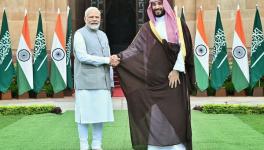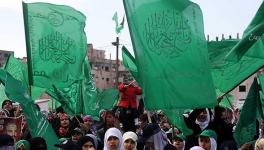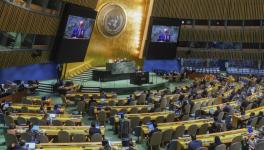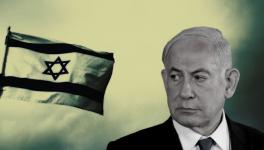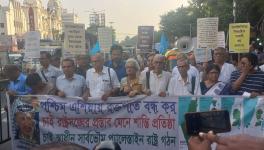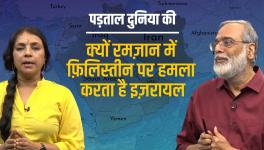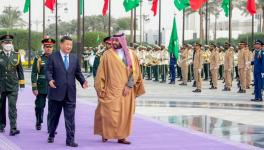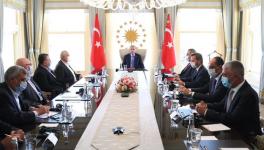The West Conspires Against Bahrain While Exploiting Syria
“If you need something done, then do it yourself.” This saying best describes what many of the oppressed and downtrodden are doing in the region by rising up against their repressive regimes.
These people lived through many years of humiliation, deprivation and discrimination, as well as being subjected to torture and abuse by their tyrannical rulers, who often enjoyed the support and protection of major world powers. Muammar Gaddafi became a close friend to Westen leaders and Hosni Mubarak as seen as a wise ruler.
But as soon as this changed – thanks to the revolution and the strong will of the people – “those who were followed disowned those who followed them, then they saw the torment, and all their relations were cut off from them,” as the Quran says.
The very same world powers now portray themselves as sponsors and backers of the right to self-determination and democracy, providing men and material for these noble goals, while continuing in their old ways by supporting some of the most reactionary and obscurantist regimes in the world – the Saudi and Bahraini ruling families.
World powers now portray themselves as sponsors and backers of the right to self-determination and democracy while continuing in their old ways by supporting some of the most reactionary and obscurantist regimes in the world.
The events unfolding in Syrian are proof of this fact. If an observer examines the Western position on the Syrian crisis from the perspective of a Bahraini, they would see with their own eyes how Western attitudes differ under one roof – acting here, while remaining silent over there.
Below are six important facts to consider regarding the Western position on Syria and Bahrain, and the future of the peoples and regimes of both countries – amid Western duplicity and double standards.
Firstly, in Syria, Western governments are putting pressure on the Syrian regime at all levels, in support of democracy and the oppressed, as they purport. The Syrian regime thus finds itself caught in a confrontation with the international community, which repeats slogans about freedom and human rights, ad nauseam.
In Bahrain, meanwhile, the same international powers are battling the people, instead of the regime. Their political leaders rarely condemn, denounce or reject the practices of the house of Khalifa against the people of Bahrain. By contrast, it is all too often said that the Khalifa regime is a strategic ally that must be protected at any cost.
Secondly, for Western political leaders, everything is justifiable for the sake of imposing democracy in Syria. For this reason, armed insurrection is fully sanctioned to attain this goal, and logistical support is readily provided for this aim, with efforts to impose a no-fly zone or even intervene militarily in order to assist the Syrian people.
In Bahrain the same international powers are battling the people, instead of the regime.
Meanwhile, in Bahrain one of the biggest taboos of the defenseless people there is for them to resist, burn tires, throw stones or fight bullets with Molotov cocktails. Whenever an American or British delegate visits Bahrain, he or she condemns violence, demands that the opposition do the same, and even expresses support for the regime’s security measures in the name of stability.
These measures include, on a daily basis, raids against homes, the detention of children, assaults against women, violations of holy sites, erecting checkpoints, torture, naturalizing foreigners working for the security forces, expelling students and employees, and prosecuting activists and opposition members.
Ultimately, the goal behind all of these abuses against a defenseless people is to protect the dictatorial regime of the Khalifa ruling clique.
Thirdly, in Syria, the army is completely made up of the country’s own citizens, who are engaging armed rebels and militants that come from various Arab and Islamic countries to fight on Syrian soil.
In Bahrain, the crackdown is carried out by security officers and the Khalifa’s army, both of which consist of a majority of naturalized mercenaries, many of whom do not even speak Arabic. They carry out their campaign of repression with the protection of a foreign Saudi army, and in full sight of the US Fifth Fleet, which is based on this small island-nation.
Worse yet, the Khalifas security forces are overtly led by British and American intelligence officers, such as John Yates and John Timothy.
Fourth, in Syria, the West is heading off any political settlement, dialogue or engagement with the Syrian regime, as this would be inconsistent with their stated goal of toppling the regime and liberating the country.
In Bahrain, the international community heaps pressure on the opposition to force it to engage in a conditional and one-sided dialogue meant to keep the current Khalifa prime minister in the same post he has been occupying for over 40 years. This is while key opposition figures are kept in prison, with no trials for the murderers and torturers – and all violence that has been perpetrated goes unpunished.
This conditional dialogue would involve allowing the Saudi army to remain, as an occupation army, to protect the dictatorship in Bahrain.
For Western political leaders, everything is justifiable for the sake of imposing democracy in Syria. For this reason, armed insurrection is fully sanctioned to attain this goal.
The West has also showered praise on the regime in Bahrain for establishing a fact-finding commission, which went on to produce an ambiguous report that practically exonerated the ruling family.
In Syria, the UN observer mission and the efforts of international envoy Kofi Annan failed to bring about any breakthrough. Lakhdar Brahimi will probably not fare much better than his predecessor either.
Fifth, in Bahrain’s uprising, when compared to other “Arab Spring” countries, we have the largest proportion of the population participating. The opposition has been violently suppressed, despite the fact that since the revolt began on14 February 2011, it has remained largely peaceful, as attested to by all international news agencies, without exception.
The irony is that, when it comes to Syria, the most dictatorial, repressive and corrupt regimes, according to Western standards, are at the top of the list of countries supporting the Syrian people's right to self-determination.
Saudi Arabia occupies Bahrain to preserve the dictatorial regime there, but sends its forces to the Syrian border and supports the armed rebellion to impose democracy there. The victims in both countries are the people.
Finally, in Syria, there is proxy war raging between forces opposed to Western and American policies – led by Iran and Russia – and the United States and its allies, both in the West and the Arab world. This war uses Syrian blood and lives as fodder, and is fuelled by Gulf oil money.
Bahrain is also caught in a geopolitical struggle. But the difference is that the island has no borders to which supporters can flock, or smuggled weapons that the local people can use to defend themselves. There are no military bases except those that are in the hands of the Khalifa regime, supported by foreign armies.
The West perceives its inconsistent position toward the two uprisings as sound, believing that its approach helps engender the kind of stability that favors its dominance of the region.
Saudi Arabia occupies Bahrain to preserve the dictatorial regime there, but sends its forces to the Syrian border and supports the armed rebellion to impose democracy there.
It is not only Syria – which borders occupied Palestine – and Bahrain – located in the heart of the Gulf monarchies and adjacent to Iran – that the West is targeting. The conspiracy is against all the Arab people, with Western powers using different means and methods that are commensurate with the strategic and economic significance of each country.
Concerning the reactionary regimes of the region, they only support these uprisings with a view to contain them or eliminate them, under the guise of protecting them, for two main reasons.
First, a regime like the Saudi one is horrified by the prospect of these uprisings spreading to its territory. And second, the foundations of the Saudi regime were built with Western support and cover, and not a popular or religious one, as we are led to believe.
For this reason, Riyadh’s interests are closely linked to Western ones. No uprising that began during the “Arab Spring” can achieve its goals with help of such backers, as these regimes are betting against them to begin with.
Ali Mushaima is a Bahraini opposition activist.
Get the latest reports & analysis with people's perspective on Protests, movements & deep analytical videos, discussions of the current affairs in your Telegram app. Subscribe to NewsClick's Telegram channel & get Real-Time updates on stories, as they get published on our website.










